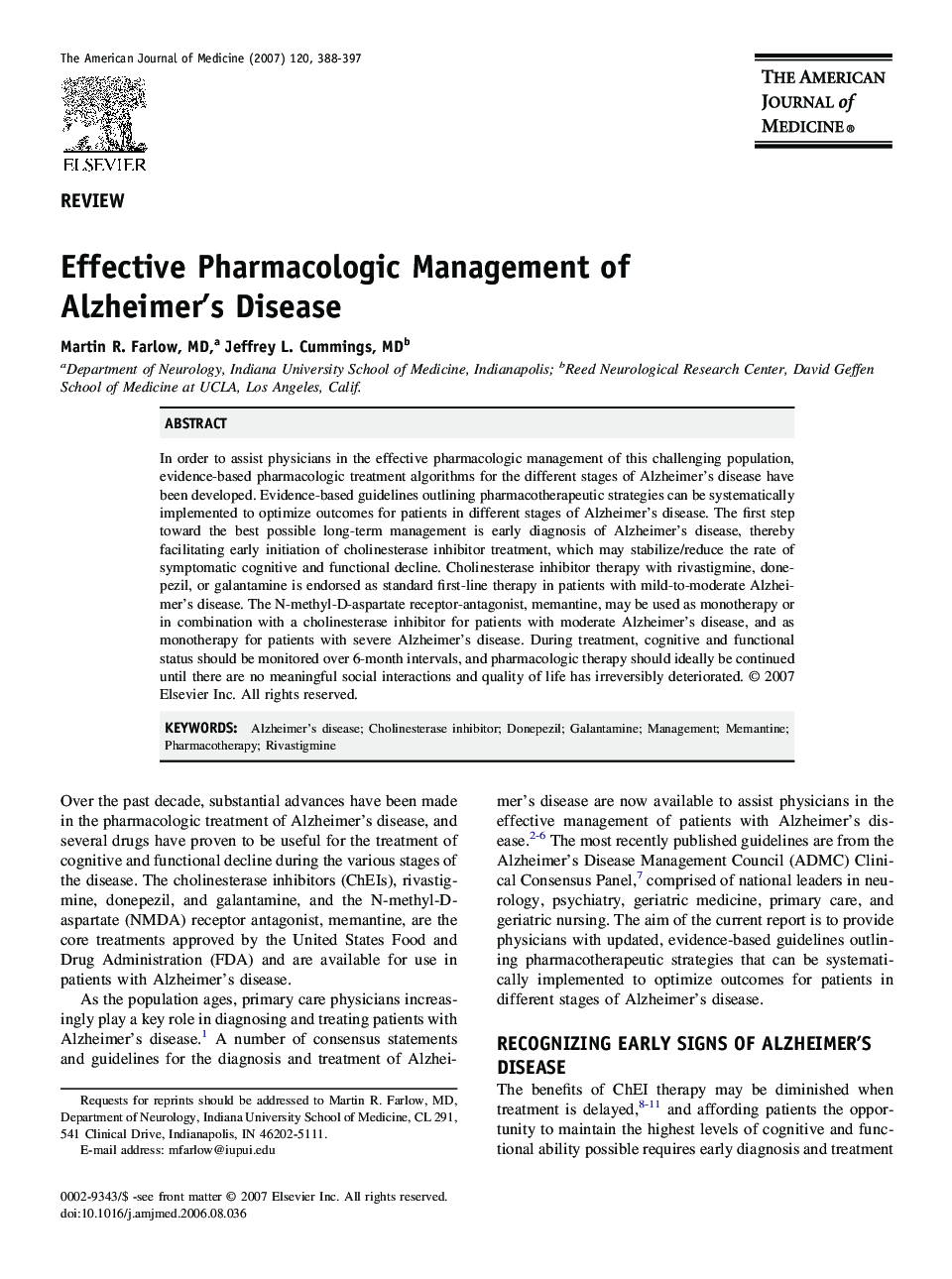| Article ID | Journal | Published Year | Pages | File Type |
|---|---|---|---|---|
| 2725226 | The American Journal of Medicine | 2007 | 10 Pages |
In order to assist physicians in the effective pharmacologic management of this challenging population, evidence-based pharmacologic treatment algorithms for the different stages of Alzheimer’s disease have been developed. Evidence-based guidelines outlining pharmacotherapeutic strategies can be systematically implemented to optimize outcomes for patients in different stages of Alzheimer’s disease. The first step toward the best possible long-term management is early diagnosis of Alzheimer’s disease, thereby facilitating early initiation of cholinesterase inhibitor treatment, which may stabilize/reduce the rate of symptomatic cognitive and functional decline. Cholinesterase inhibitor therapy with rivastigmine, donepezil, or galantamine is endorsed as standard first-line therapy in patients with mild-to-moderate Alzheimer’s disease. The N-methyl-D-aspartate receptor-antagonist, memantine, may be used as monotherapy or in combination with a cholinesterase inhibitor for patients with moderate Alzheimer’s disease, and as monotherapy for patients with severe Alzheimer’s disease. During treatment, cognitive and functional status should be monitored over 6-month intervals, and pharmacologic therapy should ideally be continued until there are no meaningful social interactions and quality of life has irreversibly deteriorated.
